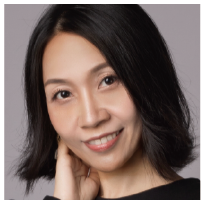During the three years of the pandemic, many young people and the elderly who have been most affected have suffered from varying degrees of worry, anxiety, fear, and even depression and panic symptoms. Some are transient, while others are more lasting.
Young people, especially those between the ages of 17-30, are just at the beginning of their lives. They are enthusiastic and passionate to actualize their dreams and are at a good time to start their career. However, their lack or little social experience has made them vulnerable to anxiety. Coupled with the impact of the pandemic, more uncertainty and self-doubt arise. For example, young people who originally planned to study abroad have become in a dilemma because of it. Should they stick with it? If so, when should they set off, until the pandemic pass? But when will it pass, who can tell? Or give up their original plans now? If they really did it, would they regret it in the future, etc...
The elderly are also more prone to different degrees of depression. The reason is that the pandemic has made them feel that what they have is lost or their harvest period has been disrupted. In addition, the rapid development of technology is overwhelming them, and their lives are no longer in control, as if they are told to work overtime suddenly just before the finished work day and no more the enjoyment of delicious dinner. Plus, they are demanded to do some unfamiliar things. It won't be difficult to know that these experiences must have felt very unhappy and powerless.
In psychology, there is a term "functional fixedness", which means that when people know the function of some things/objects, they will be accustomed to thinking that these things/objects are only limited to the function they know, while ignoring the functions of other aspects of these things/objects, just like a spoon is used to get food but can also be used to open the lid of a jar. Imagine you want to paint, you need paint trays and pen wash utensils, but you spend a lot of time all over the house but can't find these tools. Then a friend hands you disposable cups and plates and suggests you use them instead so that you can start painting. The pandemic is a very special period in our human history. We are completely ignorant of this disease. However, we humans know nothing about each disease when it begins to appear. If we can accept this fact and the disease, we are more likely to adapt to the current situation and think in a way that is not functionally fixed. In doing so, it is possible to turn crises into opportunities and even create more opportunities. Instead of just thinking about when the disease is over, which will only make people suffer, more anxious, and helpless. Even if effective prevention and treatment methods are developed, the world will not return to the state before the pandemic, and the various changes caused by the pandemic will continue to develop and exist, just as primary school students grow up and become middle school students after a few years of study and exercise. They won't return to being small kids in primary school.
Moreover, we humans sometimes have to do things selectively and non-contextually according to the actual situation, which means that when people do things, they generally follow some established contexts and procedures. For example, in the past, when looking for literature, people would go to the library to find some books first, and then read one or two chapters in each book to try to understand the context and then carefully search for the desired information. Now we rarely do this. Most people can go to Google and type a keyword to find the information. Of course, I'm not saying that we must stop going to the library, it's just that depending on the situation, we don't necessarily have to do everything as originally intended. This is called decontextualization. Another example is learning to swim. Generally, children are taught how to move their legs first, then learn freestyle, breaststroke, backstroke, and butterfly. So, is it not possible to learn breaststroke or butterfly first, or it must be improper to learn breaststroke first? Whether young or old, as long as we hold the above mentality to think and stick to what we want to do, no matter what happens, we can deal with it calmly. No matter how uncertain the world is, we can still deal with it, because the truth is that life is uncertain in this world.
